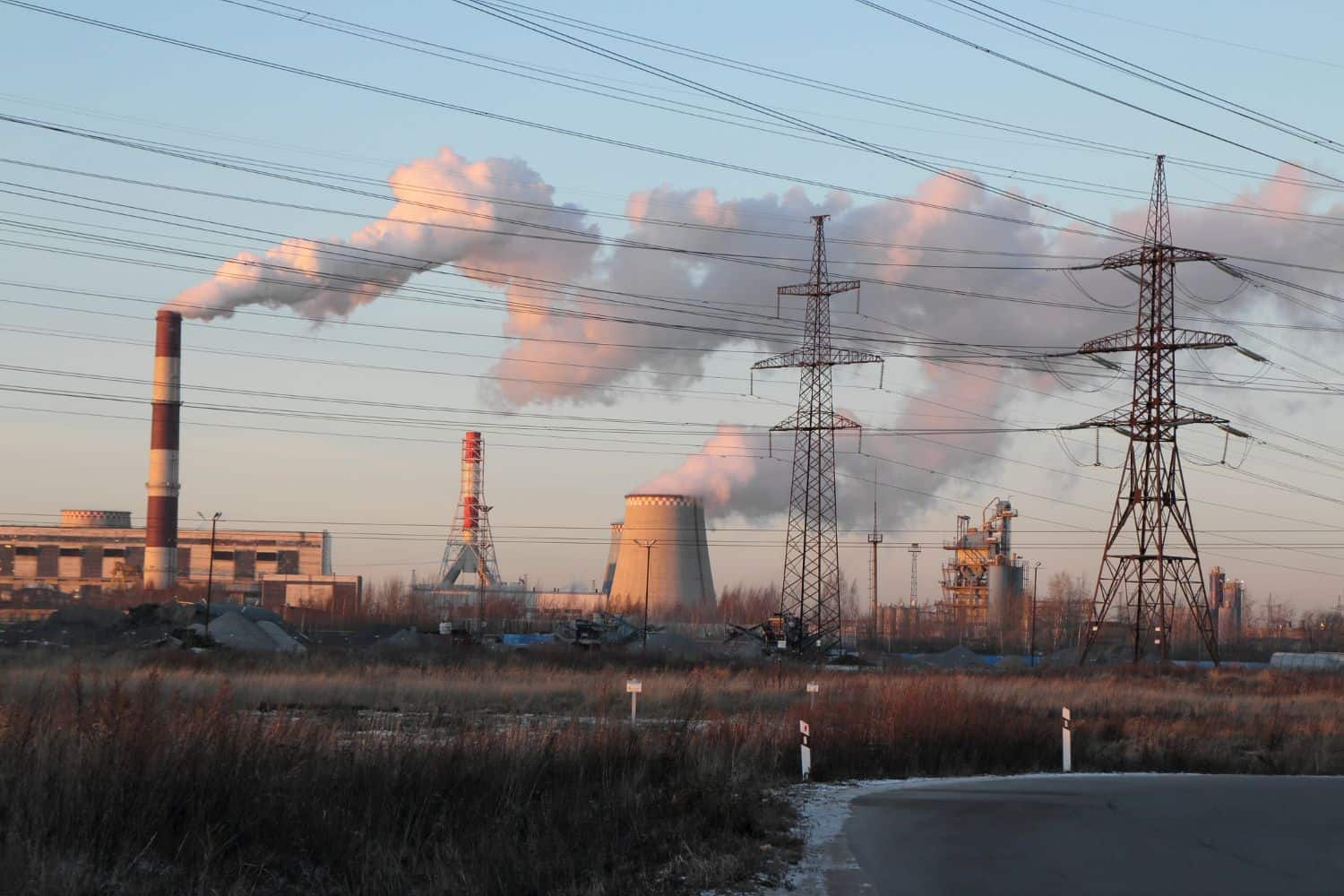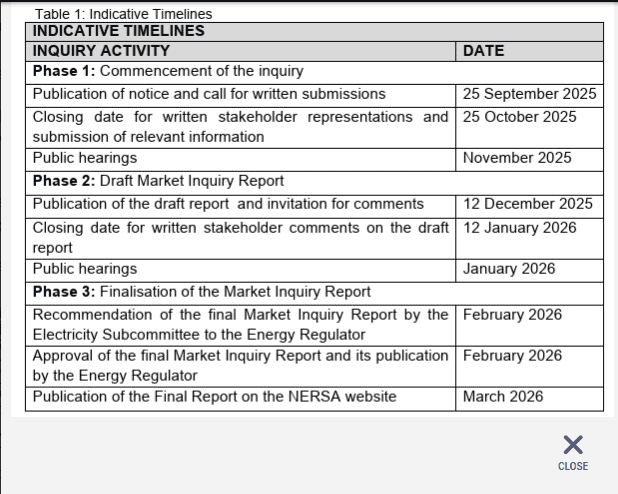Regulator to launch market inquiry into Eskom and municipal charges.

The National Energy Regulator of South Africa (Nersa) has announced that it will embark on a market inquiry into the impact of splitting Eskom’s generation charge into a generation capacity charge, a legacy charge and a variable energy charge, as well as the effect of municipal fixed charges on consumers.
This comes amid widespread dissatisfaction over high electricity costs, which has led to protest action in some areas.
Dr Kgosientsho Ramokgopa, Minister of Energy and Electricity, has repeatedly also acknowledged that tariffs are unaffordable – not only for the poor, but even for middle-class and affluent consumers.
His office has initiated a review of the electricity pricing policy and he has promised public consultation on the matter in the first quarter of next year.
Nersa itself came under fire after it recently admitted to a R54 billion mistake in Eskom’s tariff determination for the current and following two financial years, which will be recovered from electricity users through additional tariff increases from next year. A court order in this regard is still pending.
This has prompted the Electricity Intensive User Group (EIUG), comprising Eskom’s largest industrial customers, to call for a reopening of the tariff determination.
ALSO READ: Consumers pay for Nersa’s mistake
Nersa has set out the following objectives for the enquiry:
- Ensuring compliance: Verify whether licensees are adhering to approved tariffs and regulatory requirements.
- Protecting consumers: Safeguard consumers from unfair, excessive, or unauthorised charges.
- Promoting transparency: Enhance clarity in pricing structures and communication to consumers.
- Assessing cost-reflectivity: Ensure that charges are based on actual costs and are justified.
- Identifying market failures: Detect and address any practices that distort competition or harm consumer interests.
- Improving regulatory oversight: Strengthen mechanisms to monitor and enforce compliance effectively.
- Balancing stakeholder interests: Achieve a fair balance between the needs of consumers, licensees and the broader public.
- Supporting policy goals: Align pricing structures with broader economic, environmental and social objectives, such as affordability and sustainability.
The structural changes in Eskom’s generation charges that the inquiry will focus on stems from the utility’s Retail Tariff Plan, which was approved by Nersa earlier this year. It informed the tariffs Eskom implemented on 1 April and was expected to result in above-average increases for small-volume users. Large power users, as well as high-volume residential users, however, got some relief as previous cross-subsidisation was reduced.
The structural changes were supposed to be revenue-neutral, and any over- or under-recovery would be corrected during the Regulatory Clearing Account process once the actual numbers became available after the end of each financial year.
ALSO READ: Nersa admits R54 billion error first identified in January but never rectified
In the terms of reference for the inquiry, which was published on Nersa’s website together with the announcement of the inquiry, the regulator notes:
“When Nersa considered Eskom’s proposal in the Retail Tariff Plan, the shock on low-volume residential users was judged to be too extreme, and Nersa reduced it to 20% of their proposal.
“This reduction was an overarching decision, and therefore, it changed the MegaFlex tariff components as well (applicable to large power users like mines and smelters).
“In retrospect, it appears that the impact of this on MegaFlex customers has been different to that of residential customers. Therefore, it is important for Nersa to gauge the impact of these components on Eskom customers and how it has changed their costs and what impact it has on affordability and competitiveness.”
The regulator is also responding to disputes lodged by customers and other stakeholders “concerning the structure, fairness, and justification of electricity charges.” It says common themes in these disputes have made the inquiry necessary.
“This intervention is intended to safeguard the integrity of the regulatory framework while addressing a significant source of consumer dissatisfaction, potential market distortions, and the abuse of market power within the electricity supply chain.”
ALSO READ: Salga says South Africans can’t continue to bail out government’s inefficiencies after Nersa error
Regarding municipalities, Nersa says the court order last year compelling it to approve municipal tariffs on a cost-reflective basis (as prescribed by law) “brings with it additional pressure for municipalities to separate out the fixed costs.”
“Nersa has taken note of the concerns regarding the application of the municipal tariffs and seeks to gauge the impact of these changes on customers.”
The market inquiry comes as a seemingly increasing number of municipalities unlawfully deviate from the tariffs approved by Nersa. Municipalities are required to get the approval of both the municipal council and Nersa before implementing new electricity tariffs on 1 July every year.
The City of Cape Town has taken Nersa’s tariff approvals for FY 2023 and 2024 on judicial review. In FY 2024, it proceeded to implement the tariffs it approved at council even though they were not approved by Nersa. The matter has not yet been finalised.
Moneyweb recently reported that the City of Ekurhuleni implemented a set of tariffs approved by council, but at odds with what Nersa approved.
ALSO READ: Nersa admits R54 billion error first identified in January but never rectified
The Democratic Alliance has raised red flags about electricity tariffs implemented in the Naledi and Mogale City municipalities, which complied with Nersa’s requirements but lacked council approval.
The indicative timelines for the inquiry are as follows:

Source: Nersa
This article was republished from Moneyweb. Read the original here.
Support Local Journalism
Add The Citizen as a Preferred Source on Google and follow us on Google News to see more of our trusted reporting in Google News and Top Stories.






